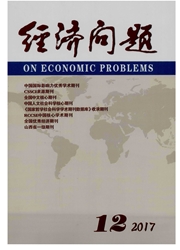

 中文摘要:
中文摘要:
使用2005~2014年34个国家的季度数据,建立面板数据模型,研究了土耳其央行自2010年底实施的货币政策新工具:不对称利率通道和准备金选择机制的有效性,结果发现:与其他国家相比,土耳其实施货币政策新工具后,短期国际资本流动对全球风险敏感性显著降低,各国短期国际资本流动与美国的M2发行量的变化正相关,与各国政府债占GDP比重的变化负相关。由此提出我国短期国际资本流动管理的政策建议。
 英文摘要:
英文摘要:
This paper utilizes quarterly data of 34 countries for 2005 to 2014 to study the effectivneness of the new tools including asymmetric interest rate corridor and reserve option mechanismof monetary policy have adopted by the Central Bank of the Republic of Turkey( CBRT) since the end of 2010. The results showed that: compared with other countries,the new tools in turkey has been effective in decreasing the sensitivity of short- term capital flows to global risk factors,the short- term capital flows positively correlated with the changes of M2 in United States and negatively correlated with the changes of government debt as a share of GDP. At last,we propose some policy recommendations about short- term international capital flow management.
 同期刊论文项目
同期刊论文项目
 同项目期刊论文
同项目期刊论文
 期刊信息
期刊信息
